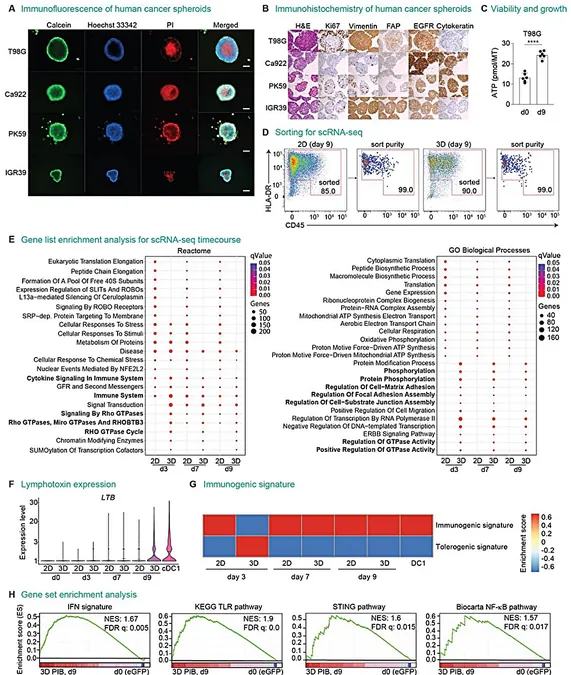
Revolutionary Discovery: Reprogramming Cancer Cells to Self-Destruct!
2024-09-16
Author: Wei Ling
Introduction
In a groundbreaking study, a collaborative team of health and medical researchers from various prestigious institutions in Sweden has unveiled a pioneering method in the fight against cancer. Their findings, published in the esteemed journal Science, showcase an innovative technique that involves reprogramming malignant cancer cells into specialized immune cells known as cDC1 (conventional dendritic cells type 1). This remarkable strategy aims to dismantle the protective shields that tumors create, thus empowering the immune system to effectively annihilate them.
The Challenge in Oncology
Historically, one of the key challenges in oncology has been the ability of certain cancers to construct formidable barriers that obstruct the immune system's T cells from infiltrating and attacking. This new study addresses that crucial issue by proposing a way to disassemble these protective barriers, thereby restoring the immune response against cancer.
Transformation Technique
The researchers achieved this transformation by identifying three specific transcription factors capable of converting various types of tumor cells into cDC1 immune cells. Utilizing advanced genetic engineering, they inserted these factors into a virus, which was then used to transport the reprogrammed cells directly to the tumor environment.
Promising Results
Initial experiments in laboratory settings showed promising results; when the reprogrammed cells were introduced into cancerous cells in a petri dish, they successfully hindered the growth of the malignant cells. Encouraged by these results, the team proceeded to inject these modified cells into test mice, where they observed that the treated tumor cells proliferated significantly slower compared to untreated cells.
Combination with Immunotherapy
In an exciting second phase of their research, the scientists also administered immunotherapeutic drugs alongside the reprogrammed cells. This combination not only curtailed the spread of tumor cells but also enhanced the production of memory T cells. These vital immune cells contribute to long-term protection against future cancer cell attacks, effectively creating a therapeutic arsenal within the body.
Future Prospects
Taking their findings a step further, the researchers explored the implications for human treatment by testing their method on human cells in vitro and confirmed that it yielded equally favorable results. With plans to escalate their research towards clinical trials, this team is on the cusp of a potential breakthrough that could redefine cancer treatment as we know it.
Conclusion
This innovative approach not only represents a leap forward in oncology but also ignites hope for millions battling cancer worldwide. If successful in human trials, this technique could mark a new era in cancer therapy, transforming how we combat this relentless disease. Stay tuned as this groundbreaking research unfolds!




 Brasil (PT)
Brasil (PT)
 Canada (EN)
Canada (EN)
 Chile (ES)
Chile (ES)
 España (ES)
España (ES)
 France (FR)
France (FR)
 Hong Kong (EN)
Hong Kong (EN)
 Italia (IT)
Italia (IT)
 日本 (JA)
日本 (JA)
 Magyarország (HU)
Magyarország (HU)
 Norge (NO)
Norge (NO)
 Polska (PL)
Polska (PL)
 Schweiz (DE)
Schweiz (DE)
 Singapore (EN)
Singapore (EN)
 Sverige (SV)
Sverige (SV)
 Suomi (FI)
Suomi (FI)
 Türkiye (TR)
Türkiye (TR)